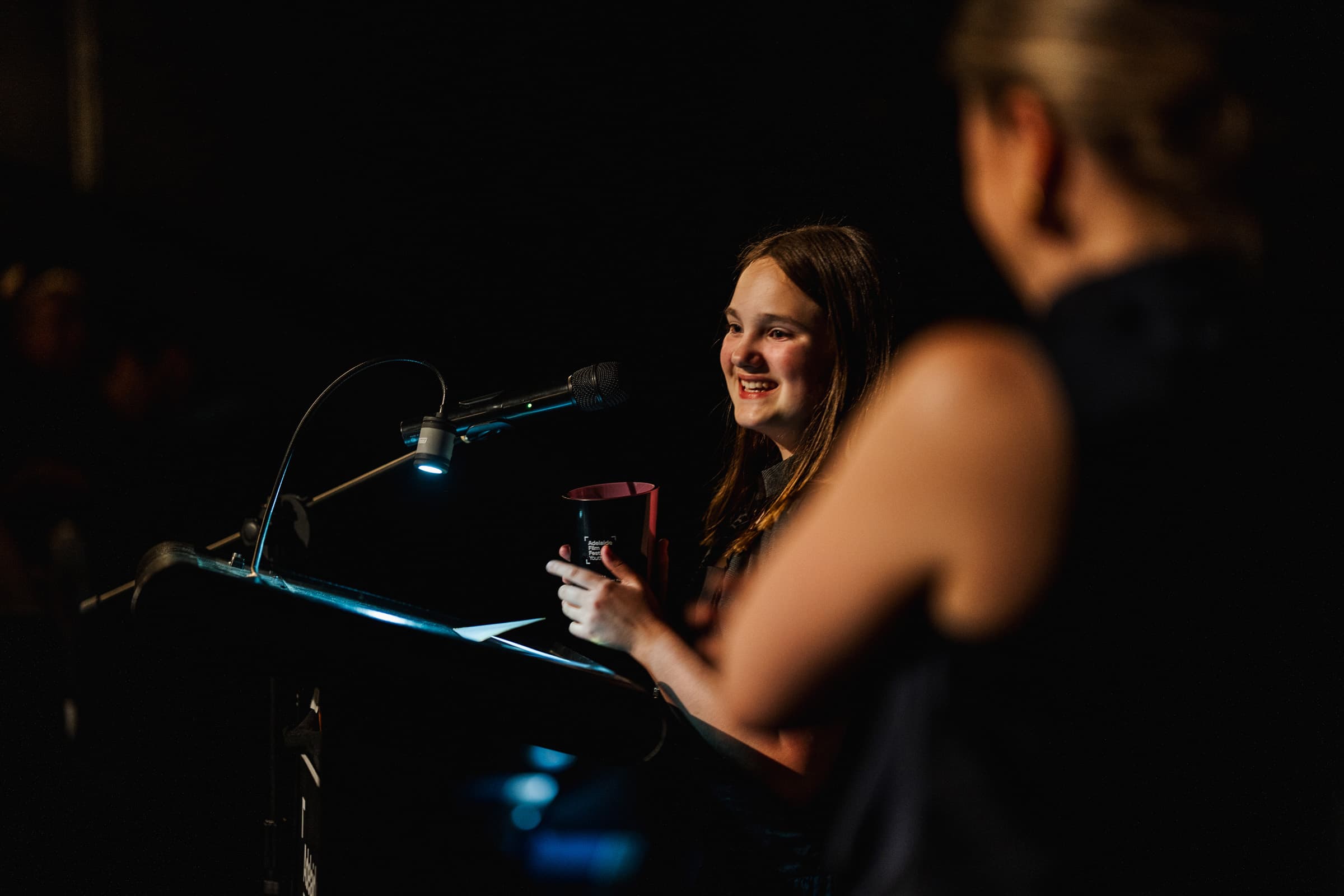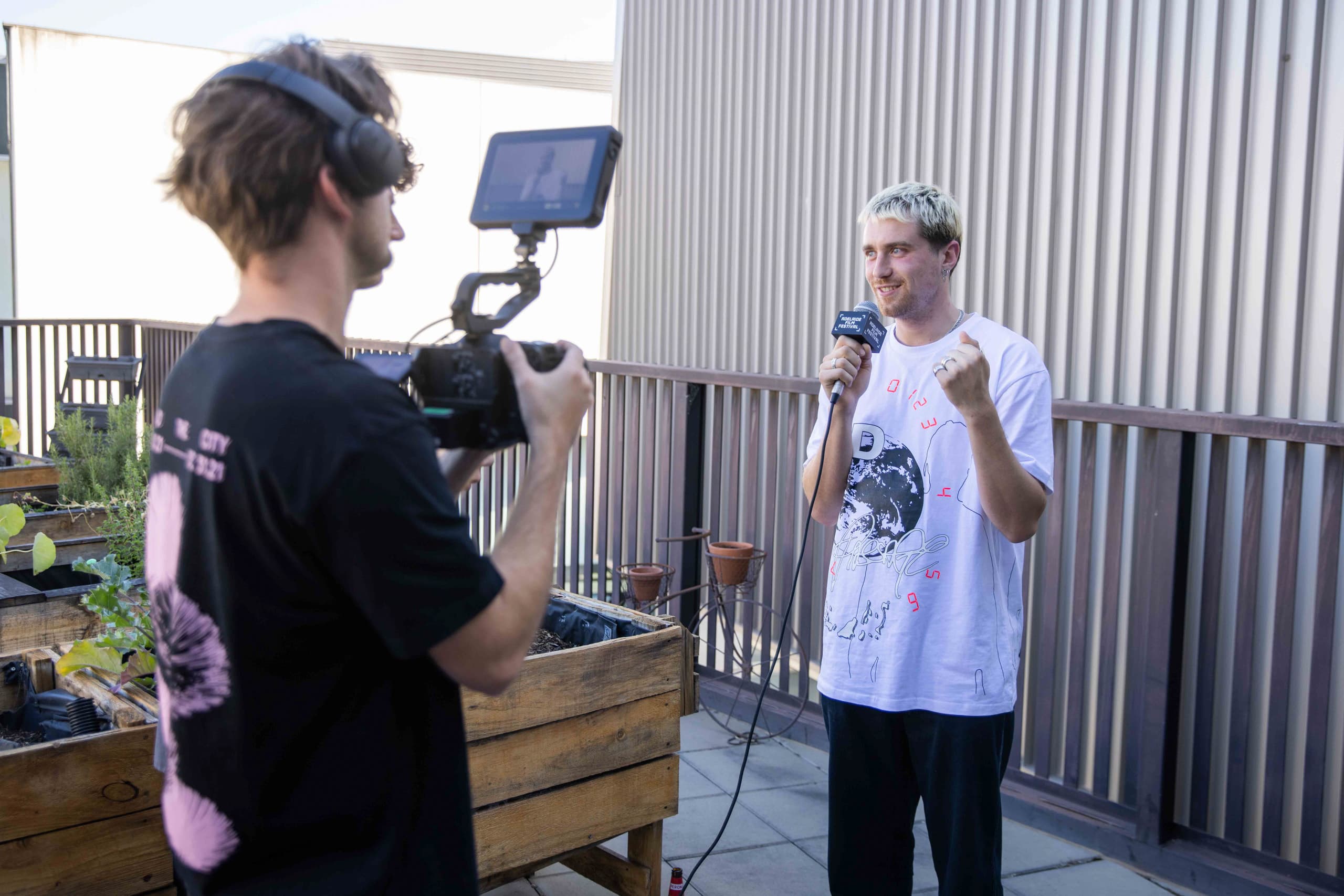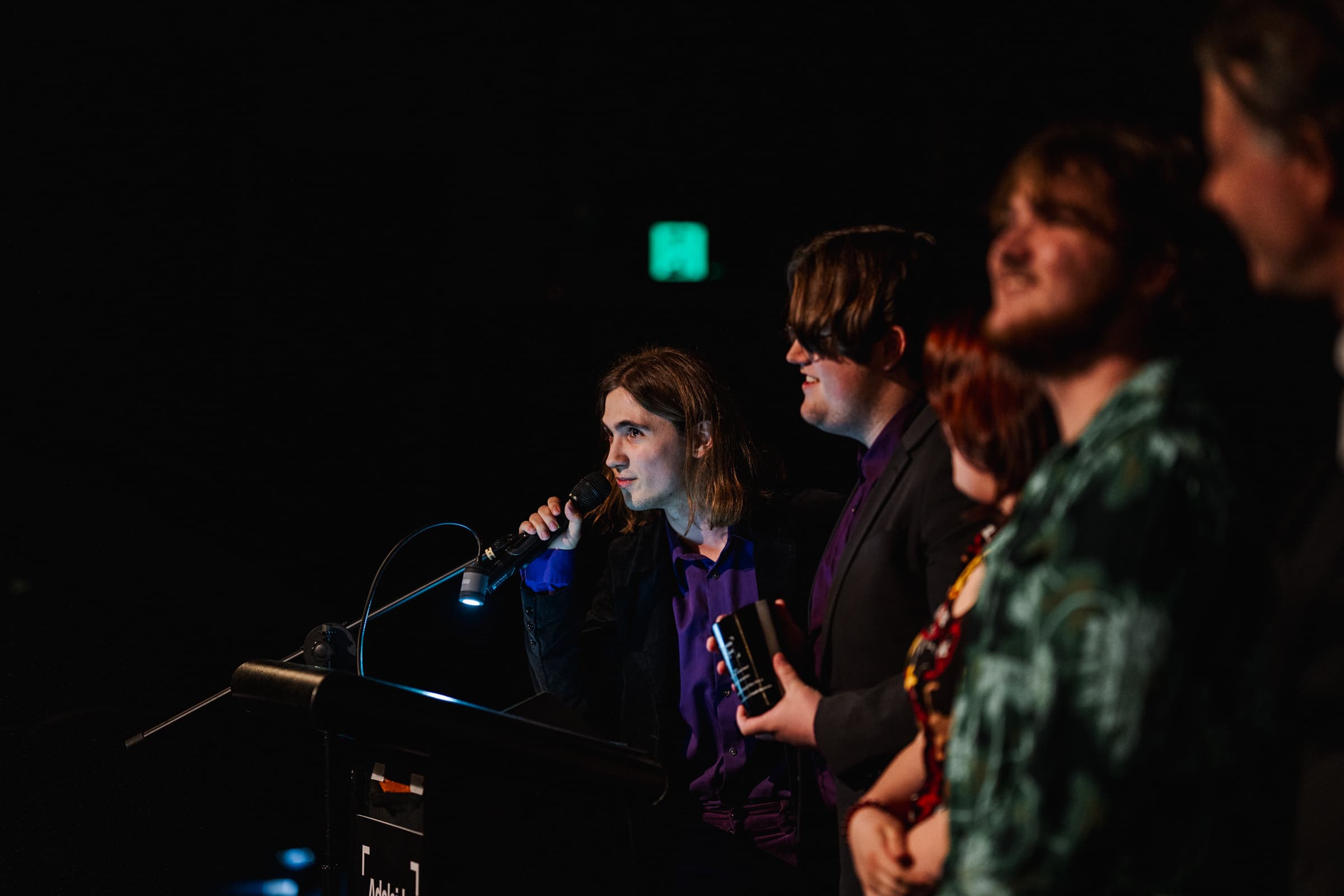
AFF Youth
Initiatives
AFF Youth
Make a scene!
AFF Youth is an offshoot of the acclaimed Adelaide Film Festival — an opportunity for South Australian students and young people to experience the power of film, make industry connections, and share their own stories on the big screen.
Submissions for the 2025 AFF Youth Filmmaking Competition are now open. Find out more here.
"Being part of the AFF Youth Jury was an incredible experience that I’ll never forget. My knowledge of film grew immensely, and I had the amazing opportunity to meet industry people, including those from organisations such as Carclew. Since then, I’ve been inspired to continue pursuing filmmaking and am currently working on a film that I hope to submit to the Adelaide Youth Film Festival this year."
Violet, AFF Youth Jury member
"Having a local opportunity like this was a great way for my friends and I to develop skills in filmmaking and acting. It was amazing to see our work shown on the big screen and we were all glad to have been able to work together on this project. We are excited to collaborate on new films in the future!"
Gabriel, Filmmaker
"What I enjoyed most of the whole experience was seeing other young people's creativity. I really would recommend participating because you can choose any topic you like in any medium of film. All the entries were so different from each other, it was brilliant."
Percy, Filmmaker




